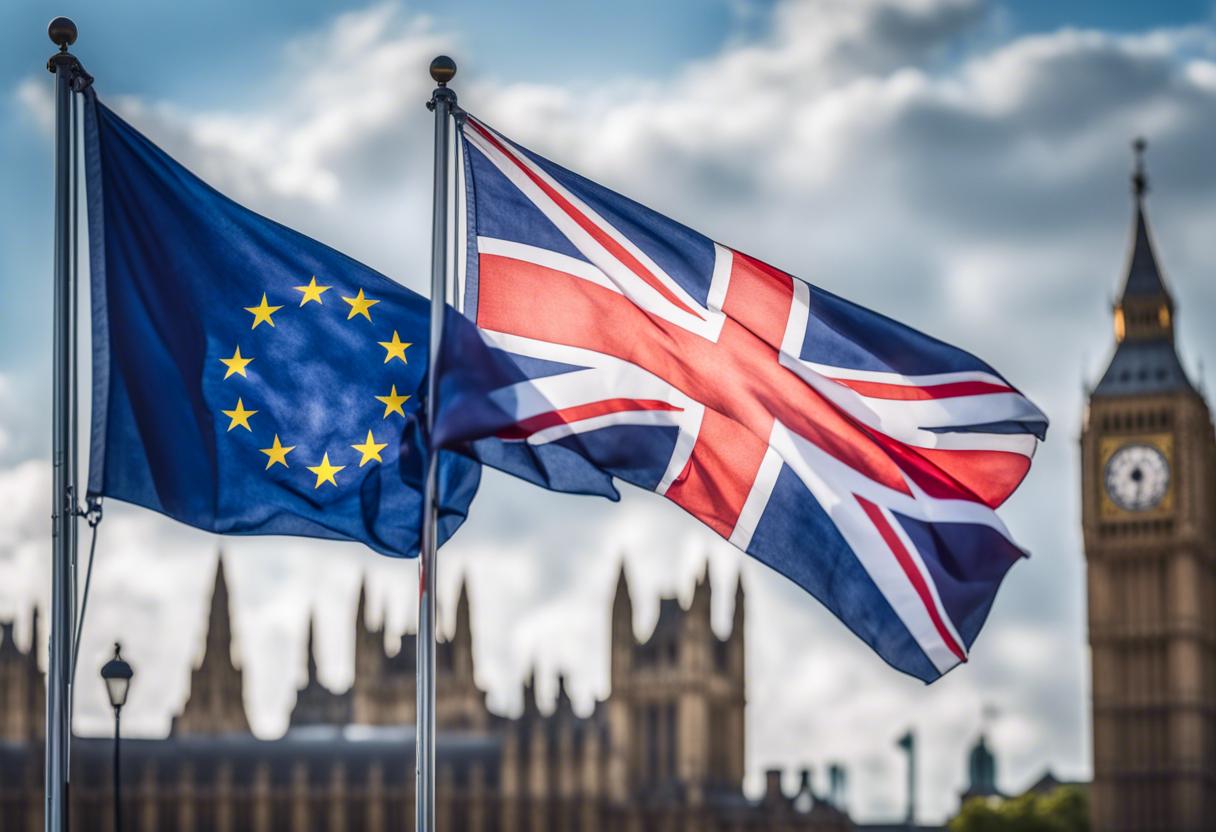During a meeting with France’s President Emmanuel Macron in Paris, Keir Starmer, the British Prime Minister, spoke about his intentions for a comprehensive reassessment of ties with France and the European Union. Following a meeting with members of Team GB’s Paralympic team, the discussion took place at the Elysee Palace.
Mr. Starmer’s conference with Mr. Macron revolved around situations in Ukraine and the Middle East, bilateral issues with a focus on trade and security, and his broader intentions to redefine not just the United Kingdom’s relationship with France, but also with the European Union.
The main agenda of their discussions was geared towards reset, rebuild, and ensuring that economic growth remains at the forefront of their actions. A representative from Downing Street noted that the recent European Political Community summit, which took place at Blenheim Palace, was successful. The leaders also concurred on the significance of intensifying and expanding the strong relationship between France and the UK in the upcoming months.
Mr Starmer expressed appreciation for the joint effort of the UK and France in curbing small boat crossings. Both he and Mr Macron agreed upon intensifying actions to dismantle smuggling routes and on increasing intelligence sharing, as the representative stated.
The prime minister’s endeavour to develop relations with influential figures in the EU was evident from his attendance, alongside Mr Macron, at the Paralympic Games inauguration in Paris, followed by his discussions with Germany’s Chancellor Olaf Scholz in Berlin.
During the initial part of his visit, Mr Starmer made it clear that his plans for a new treaty with Germany, which involved “deeper links”, didn’t equate to a U-turn on Brexit. After talks with Mr. Scholz, an agreement was reached that a treaty with Germany would be established by year’s end, an event Mr Starmer referred to as a “once-in-a-generation” chance. The two nations agreed on creating a “joint action plan to combat illegal migration.” A proposition for a youth mobility agreement by Brussels is expected to be a primary demand in any discussion.
The idea of restoring free movement has not been categorically rejected, with the possibility considered by some as a move towards such a direction. Despite this, according to Keir Starmer, no initiatives for a youth mobility agreement are on the table, and he has remained firm on his stance concerning the relationship with the EU in the future.
The UK’s relationship with the European Union and how it impacts British young people has been brought into discussion. Miguel Berger, the German ambassador to the UK, has suggested that a youth mobility deal with the European Union “ought to be seen favourably by the UK”.
Berger, during his conversation with BBC Radio 4’s Today Programme, addressed several misconceptions surrounding the idea of youth mobility. He clarified that it should not be confused with freedom of movement or with issues related to migration.
He explained that youth mobility primarily provides the opportunity for young people, who have arguably borne the brunt of Brexit’s impact, to temporarily visit the European Union and the UK, before eventually returning to their home country. This, he stressed, serves to broaden the horizons for young individuals.
Berger emphasized that the aim to boost such opportunities is shared not only by Germany, but is also a desire held collectively by all 27 nations within the European Union.

